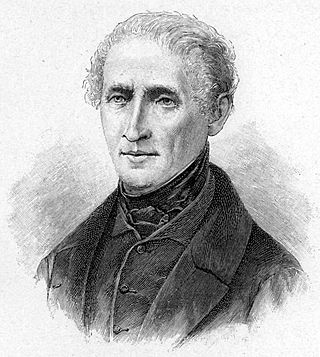
Joseph Freiherr von Eichendorff was a German poet, novelist, playwright, literary critic, translator, and anthologist. Eichendorff was one of the major writers and critics of Romanticism. Ever since their publication and up to the present day, some of his works have been very popular in German-speaking Europe.

Alexander Harbord Mitscherlich was a German psychiatrist and psychoanalyst.

Christoph Meckel was a German author and graphic artist. He received awards for his works which connect illustrations with the written text, sometimes texts by others.
Gerd Zacher was a German composer, organist, and writer on music. He specialized in contemporary compositions, many of which feature extended techniques, and are written in graphic or verbal scores. He interpreted the scores of numerous contemporary composers, including John Cage, Juan Allende-Blin, Mauricio Kagel, György Ligeti, Hans Otte, Luis de Pablo, and Isang Yun. He is also known as an interpreter of the works of Johann Sebastian Bach.

Otfried Höffe is a German philosopher and professor.
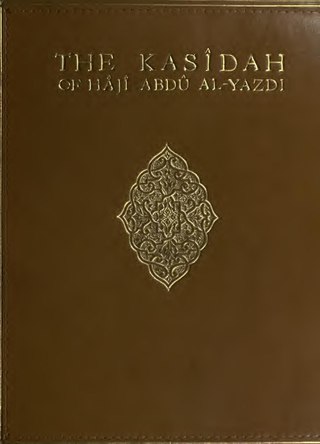
The Kasîdah of Hâjî Abdû El-Yezdî (1880) is a long English language poem written by "Hâjî Abdû El-Yezdî", a pseudonym of the true author, Sir Richard Francis Burton (1821-1890), a well-known British Arabist and explorer. In a note to the reader, Burton claims to be the translator of the poem, to which he gives the English title "Lay of the Higher Law." It is thus a pseudotranslation, pretending to have had an original Persian text, which never existed. The Kasidah is essentially a distillation of Sufi thought in the poetic idiom of that mystical tradition; Burton had hoped to bring Sufist ideas to the West.
Thomas Kling was a German poet.
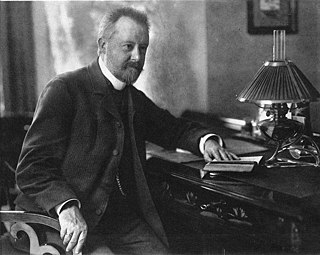
Gustav Falke was a German writer.

Rüdiger Döhler FRCSEd was a German professor of orthopedic surgery.
Fritz Schupp was a German architect. He was educated from 1914 to 1917 at the Universities of Karlsruhe, München and Stuttgart. Despite mostly working alone, he formed a partnership based in Essen and Berlin with Martin Kremmer. From 1949, Schupp was a lecturer at the Technical University in Hannover. Between 1920 and 1974, he built 69 factories and plants. In the Bergbauarchiv (Bochum), 17500 sketches are at the disposal of researchers. His best-known work was the Zollverein Coal Mine Industrial Complex, a UNESCO World Heritage Site since 2001.
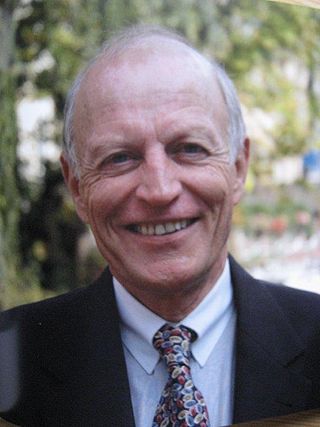
Dieter Mahncke is a scholar of foreign policy and security studies, and Alfried Krupp von Bohlen und Halbach Professor Emeritus of European Foreign Policy and Security Studies at the College of Europe. He is the author of books and articles on European security, arms control, German foreign policy, Berlin, US-European relations and South Africa.
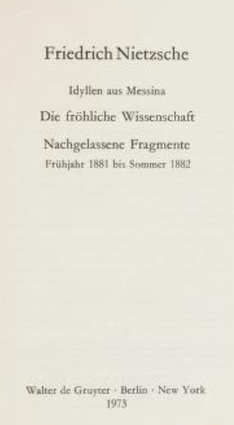
Idylls from Messina is a set of eight idylls composed by Friedrich Nietzsche. These poems were written in Sicily during the spring of 1882, where Nietzsche remained for three weeks after arriving from Genoa.
Wilfried Loth is a German historian and political scientist.
Wolfgang Burandt is a German lawyer, mediator, legal academic and professor for commercial law at the Nordakademie - Graduate School.

Gordon Kampe is a German composer and academic teacher.

Klaus Modick is a German author and literary translator.
Kurt Honolka was a German musicologist, journalist, and music and theatre critic. He is known as a translator of the librettos of Czech operas into German, such as Smetana's Dalibor and Janáček's Osud.
Steve Pasek is a German Egyptologist, Demotist, Historian and Classicist.

Wilfried Gruhn is a German violinist, musicologist, music educator, and professor emeritus at universities in Germany and abroad. His focus is the music education of small children. He founded and directed the Gordon Institute of early childhood music learning in Freiburg in 2003. He is engaged in several international organisations such as International Society for Music Education (ISME) and the Internationale Leo Kestenberg Gesellschaft which published Leo Kestenberg's complete writings in six volumes.

Martin Schulze Wessel is a German historian. He has been Professor of Eastern European History at the Ludwig Maximilian University of Munich since 2003.













